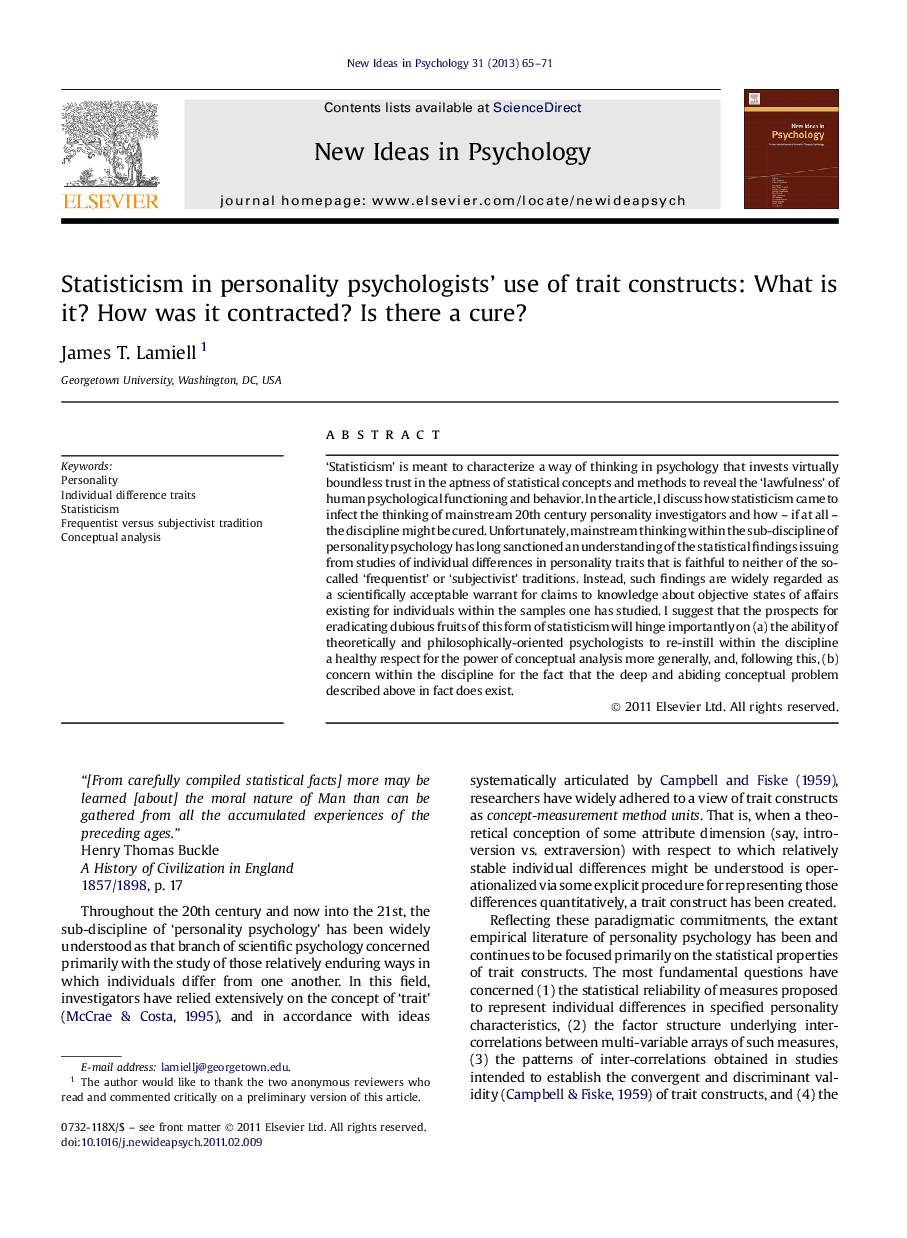| Article ID | Journal | Published Year | Pages | File Type |
|---|---|---|---|---|
| 331415 | New Ideas in Psychology | 2013 | 7 Pages |
‘Statisticism’ is meant to characterize a way of thinking in psychology that invests virtually boundless trust in the aptness of statistical concepts and methods to reveal the ‘lawfulness’ of human psychological functioning and behavior. In the article, I discuss how statisticism came to infect the thinking of mainstream 20th century personality investigators and how – if at all – the discipline might be cured. Unfortunately, mainstream thinking within the sub-discipline of personality psychology has long sanctioned an understanding of the statistical findings issuing from studies of individual differences in personality traits that is faithful to neither of the so-called ‘frequentist’ or ‘subjectivist’ traditions. Instead, such findings are widely regarded as a scientifically acceptable warrant for claims to knowledge about objective states of affairs existing for individuals within the samples one has studied. I suggest that the prospects for eradicating dubious fruits of this form of statisticism will hinge importantly on (a) the ability of theoretically and philosophically-oriented psychologists to re-instill within the discipline a healthy respect for the power of conceptual analysis more generally, and, following this, (b) concern within the discipline for the fact that the deep and abiding conceptual problem described above in fact does exist.
